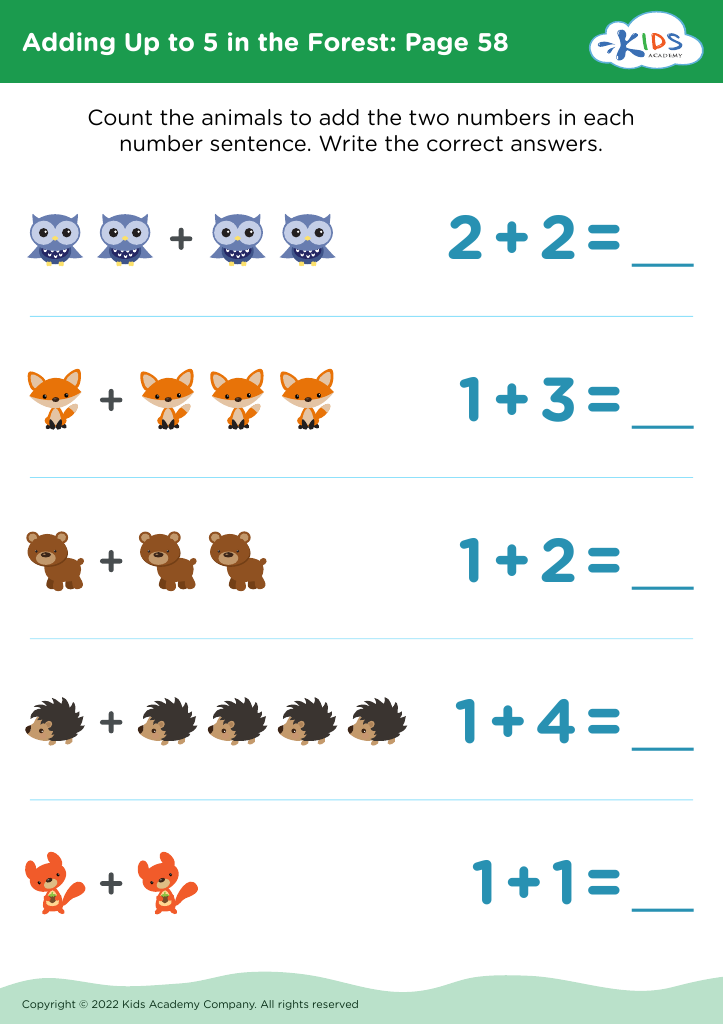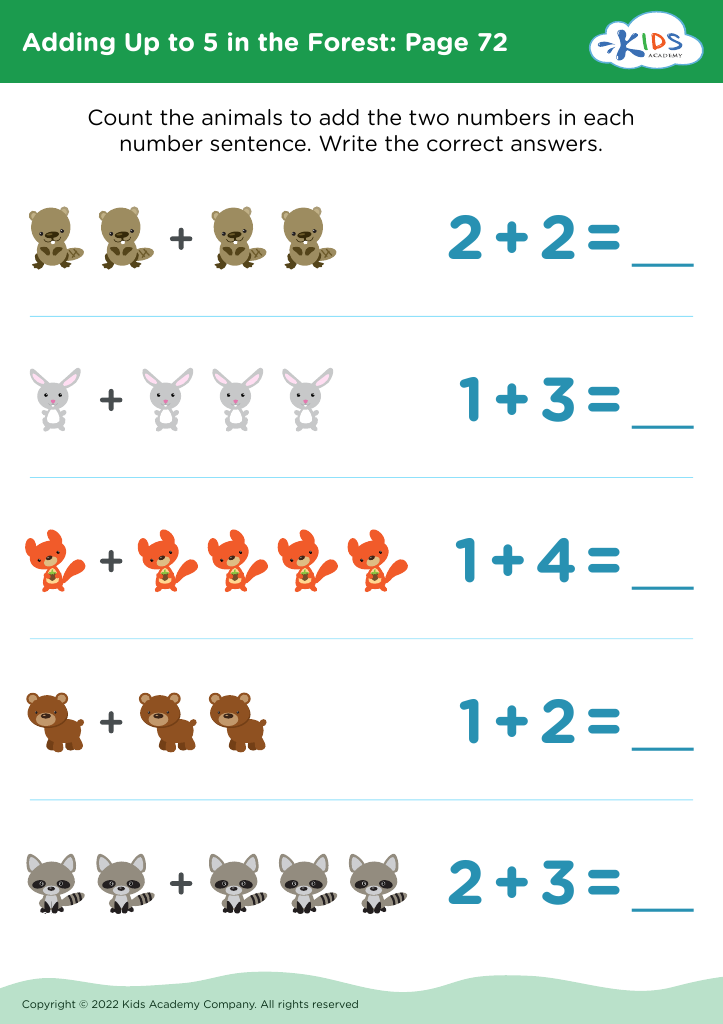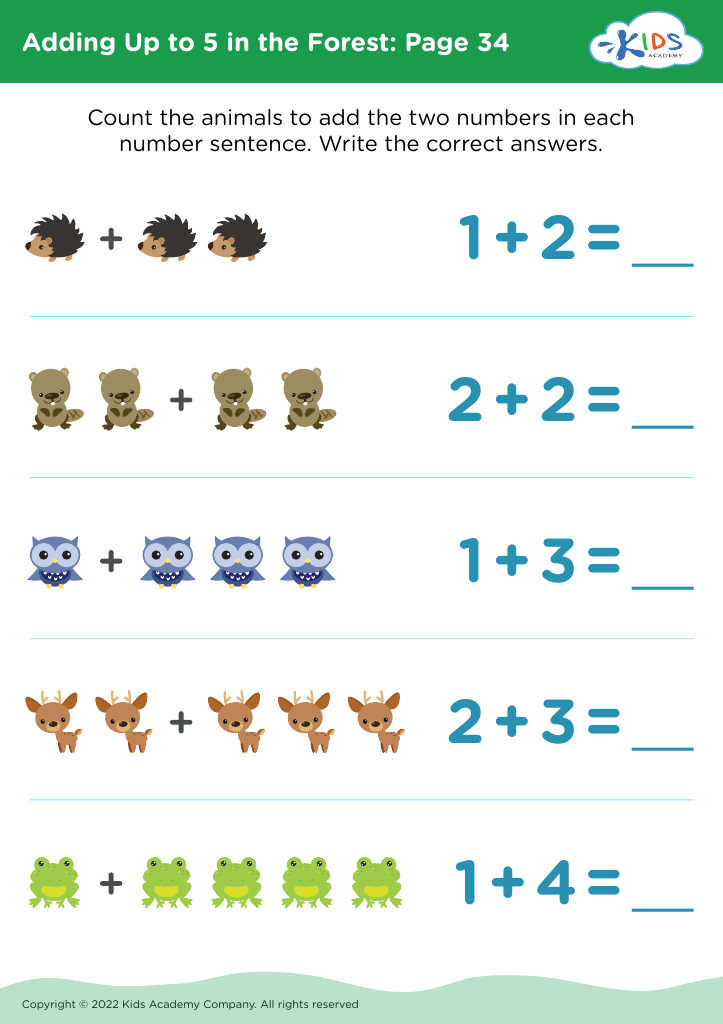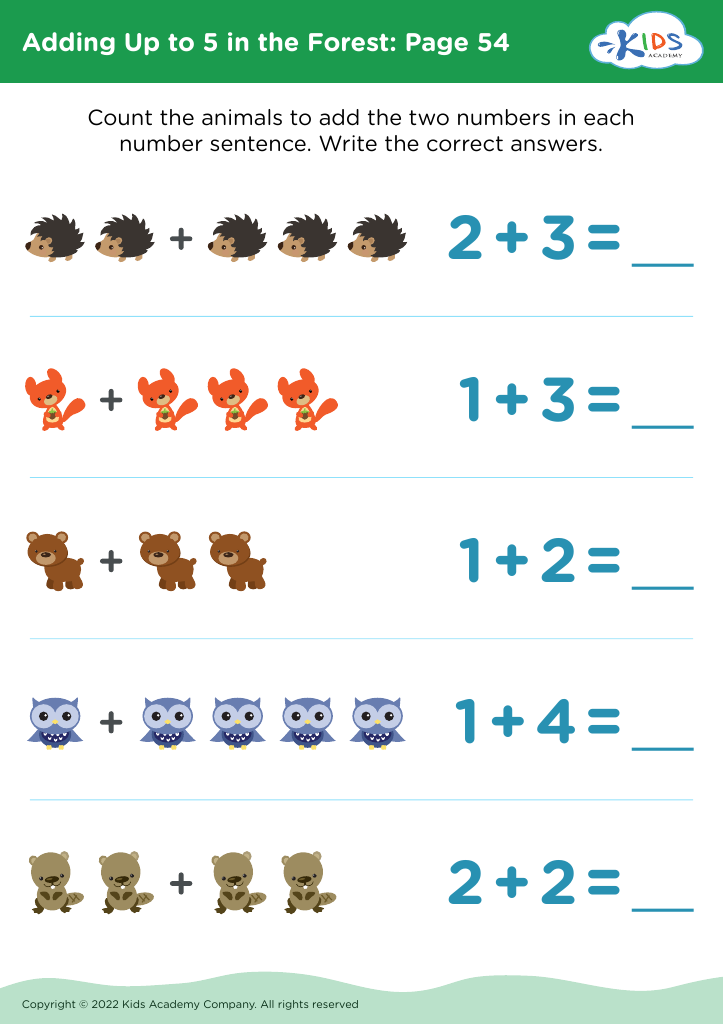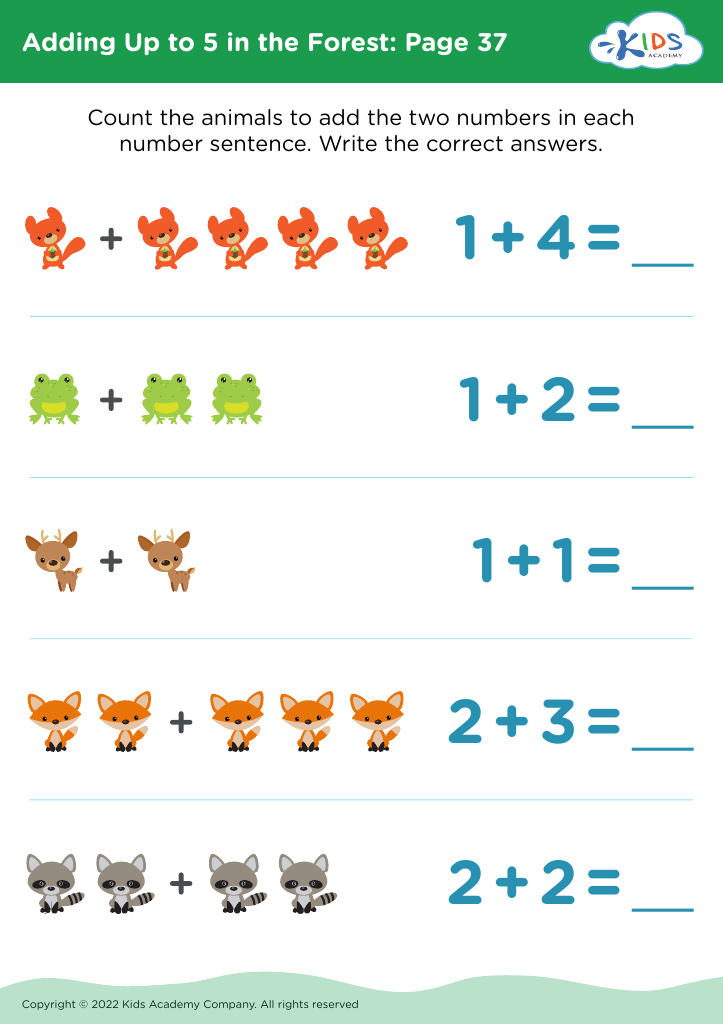Nature appreciation Addition & Subtraction Worksheets for Ages 5-8
5 filtered results
-
From - To
Discover the fun of learning math with our "Nature Appreciation Addition & Subtraction Worksheets" designed for children aged 5-8! These engaging worksheets combine essential math skills with an appreciation for the natural world. Your young learners will practice addition and subtraction through colorful illustrations of flowers, animals, and forests, making math both exciting and relatable. Each worksheet encourages critical thinking while fostering a love for nature, igniting curiosity about the environment. Perfect for homeschooling or classroom activities, these worksheets enable children to grasp basic math concepts while enjoying the beauty of nature. Equip your child for success with our thoughtfully crafted resources!
Nature appreciation combined with addition and subtraction provides a valuable learning experience for children aged 5-8, making math more engaging and relatable. This approach fosters a sense of curiosity about the natural world while enhancing essential math skills.
Firstly, incorporating nature can make abstract concepts like addition and subtraction concrete. For example, counting leaves, bugs, or flowers during a nature walk can help children visualize numbers, making it easier for them to grasp arithmetic operations. Secondly, this method nurtures a love for the environment, helping children understand the importance of nature and their role in preserving it.
Moreover, hands-on activities in a natural setting can lead to improved focus and retention, as children are more likely to remember lessons that are interactive and enjoyable. Nature provides endless opportunities for experiential learning, encouraging students to ask questions, investigate, and explore their surroundings while engaging in math.
Parents and teachers should care about this blend because it not only develops mathematical proficiency but also instills a sense of responsibility towards the environment, fostering holistic development in young learners. This dual focus on math and nature cultivates critical thinking, creativity, and emotional intelligence, preparing children for a well-rounded future.

